One of Angela Merkel's closest allies has warned David Cameron not to try to blackmail the rest of Europe. The prime minister was also told a UK referendum was a high-risk option that might paralyse Europe and end in economic disaster for Britain.
The chair of Germany's European affairs committee, Gunther Krichbaum, is leading a high-powered delegation from the German Bundestag on a two-day visit to Britain.
He said: "There is certainly a risk that [a referendum] could paralyse efforts for a better Europe and deeper integration. Britain would risk being isolated. That cannot be in Britain's interests."
Asked how Germany would respond to the UK's threat to block treaty changes designed to make the euro stronger if the UK is not granted the reforms it seeks, Krichbaum said: "You cannot create a political future if you are blackmailing other states. That will not help Britain. It needs a Europe that is stable. It needs markets that are functioning."
He also questioned whether Cameron would be able to control the terms of a referendum on renegotiated terms of membership.
"You have to ask yourself if it is wise to carry out a referendum. It is certainly possible to convince people of advantages of the EU. But there is always a risk that the referendum becomes – as Charles de Gaulle put it – less about the question asked and more about the person who's asking it."
He urged British Eurosceptics to think through the consequences of Britain leaving the EU, or adopting the same status as Switzerland or Norway.
"Some people claim that Switzerland is in a remarkable position. I highly doubt that: Switzerland needs the EU, but it cannot influence the political process within the EU. That is a big problem.
"If Britain loses the single market it would be a disaster for the British economy. If Britain left the EU, it would weaken the European Union and the idea of Europe, but it would also weaken the position of Britain vis-à-vis the EU and in the world."
Krichbaum is a senior member of Merkel's CDU party. His remarks come a day after the US assistant secretary of state for European affairs, Philip Gordon, warned Cameron of the dangers of staging a referendum.
Gordon infuriated some British sceptics by saying a referendum might turn the EU inwards at a time when America wants an outward-looking EU with Britain in it.
Krichbaum also expressed fears that a British attempt to reopen its relationship with the EU at a time of a treaty negotiation sometime after 2015 would open a Pandora's box, with different demands being made by other EU member states.
Asked if Britain could reopen the Lisbon treaty, he replied: "That's first of all legally impossible because the treaties are done. But in the broader sense of negotiating a new treaty, it is neither wise nor useful to open Pandora's box, because every state in the EU, not just Britain, would again try to get their interests in."
He said he was convinced that although all EU member states need each other, Britain would suffer more from being outside the EU, than the rest of the EU would from Britain's absence.
He suggested Britain would need to renegotiate a series of bilateral trade deals to ensure its goods had access not just to EU, but to world markets.
Downing Street responded to the American intervention by insisting it wanted a change in the UK-EU relationship.
Cameron is due to make his landmark speech on Europe shortly, with growing signs that British business is becoming nervous that he is opening up a period of lengthy uncertainty that will damage Britain's trading relationship with the EU.
Krichbaum suggested the European economy was now strengthening after its crisis last summer, and suggested it may be necessary to pass treaty changes in two to three years' time to strengthen the euro.
"The crisis was not caused by 'too much Europe' but by 'too little Europe'. We had a common currency but we did not have a necessary common economic policy."
Other figures have suggested that the EU could strengthen its economic integration without resorting to treaty changes, a decision that would deprive Cameron of a negotiating wedge to demand changes in the UK relationship.
All treaty changes require unanimous support from member states, something Britain could withhold until it won its concessions.
The shadow foreign secretary, Douglas Alexander, said: "Yesterday the Americans and today the Germans warned David Cameron about pushing Britain towards exit from Europe.
"These warnings from Britain's allies come within a few hours of leading British businesspeople joining the growing chorus of concern about David Cameron's approach to Europe."
The deputy prime minister, Nick Clegg, also warned Cameron to think through his strategy. He told Westminster reporters: "When you have one in 10 jobs in this country, three million people, whose jobs are dependent on our position as a leading member of the world's biggest borderless single market, you play with that status at your peril – these are jobs at stake, livelihoods."
He urged Cameron to think big and not small on Europe, adding that he could not see the point of a discussion about a referendum at this point when it was not even clear that the rest of Europe would seek a treaty change.
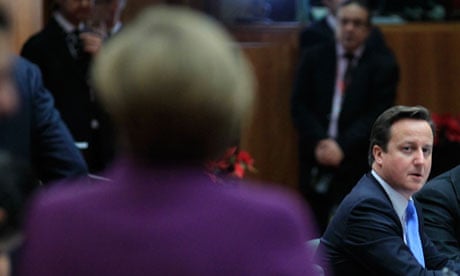
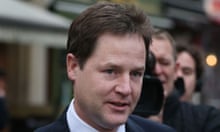

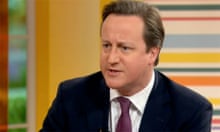
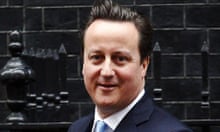
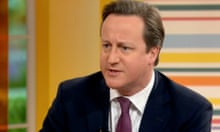
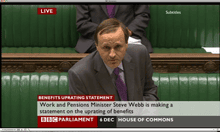
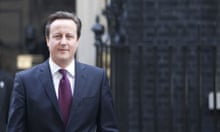
Comments (…)
Sign in or create your Guardian account to join the discussion